#of how backstory and introductions play a part in why we love problematic characters
Explore tagged Tumblr posts
Text
I saw one of your old posts about C/lexa shippers latching onto Yasha and BOY IS IT TRUE. Looking back Lexa had very little personality besides ruthless leader but fandom!Lexa was secretly soft and loved candles and flowers. It feels like fandom just latched onto her as a new chance at Lexa and didn't care that she was essentially just a different shell with some equally problematic cultural appropriation.
Slow your roll there, anon. We do not shit-talk Lexa in this house.
While I do agree with you that fanon Lexa was indeed softer than canon Lexa, she did have soft moments in the show. Did fandom take that idea and exaggerate it? Absolutely, yes. But they didn’t pull it out of their asses. Which is NOT the case with the Yasha situation.
Also, can we (by ‘we’ I mean fandom in general) please learn the difference between ‘no personality’ and stoicism?
Something that’s always pissed me off is how stoic male characters are consistently lauded and fawned over, and stoic female characters (which are already rare) are described as ‘having no personality’ or ‘having one facial expression’. Which simply isn’t true in most cases, and certainly isn’t in this one. ADC played Lexa beautifully and showcased plenty of emotion while staying true to Lexa’s grim and strict warrior upbringing. I really think that in anyone else’s hands, the character would’ve either completely fallen flat, or would’ve been so overacted that it became theatrical and cringey.
Lexa was stoic, pragmatic, and a leader. Yasha was none of those things, which is why I was confused by the comparisons. She was socially awkward and... that’s it. Which was clearly meant to be a charming trait, but didn’t really land with people who didn’t already have Yasha tunnel vision. And it didn’t land because it didn’t stem from Yasha’s backstory, it stemmed from Ashley. She’s awkward and goofy and in turn it seeps into her RP, even when it makes no sense for the character.
Maybe some people did see her as ‘a new chance at Lexa’, but that’s hard for me believe considering that the obsession started the second her official art was released. At that time, we still didn’t know much about Yasha. Same with all of the characters. They were literally just going off of her introduction and a portrait.
On The 1/00, we learned about Lexa’s view of the world and of herself. The pain she was still feeling from Costia’s death. How she trained the Nightbloods, and was essentially a mother figure for them. That despite her being capable of ruthlessness, she truly wanted peace for her people, and was trying her hardest to get the clans to quit warring with each other by forming The Coalition. For the extremely short amount of time we had her (just 16 episodes), we were given a whole fucking feast of a character. There’s a reason the Guest Star™ outshined the mains. (In addition to that, she just happened to be god damned beautiful too.)
Yasha however, largely remained an enigma for the better part of a 141 episode campaign. So I can’t agree with you about Yasha being ‘essentially just a different shell’ of Lexa. Unlike Lexa, the main reason people fell for Yasha was her looks, because they literally didn’t have much else to fall for.
These are two wildly different characters with two wildly different fan situations.
So no more comparisons, please and thank you.
#op#ask#i hope you don't take this as an attack anon#i know my tone is a little angry but#after all the BS about lexa from b*llarke shippers over the years#i don't take kindly to people who try to lessen her and her impact#lexa had a fire simmering in her at all times#yasha was a wet lump
2 notes
·
View notes
Text
Why Batwoman 2x01 was so good:
1. The writers managed to strike a great balance between paying respect to Kate Kane and introducing Ryan. Kate Kane as a character is, of course, significant to DC. She’s an important source of representation as a Jewish lesbian, and she has a large legacy/mythos within the larger DC Comics history. Batwoman first showed respect to Kate as a character by wisely chosing to not kill her off. Next, there’s one scene where Ryan is reading up on Kate, developing new understanding and respect in the process, and every few seconds the camera cuts over to where Mary and Luke are reading up on Ryan, similarly gaining understanding and respect for Ryan. I think this scene effectively facilitate the batsuit’s—as a mantle, as a symbol, and as a mythos—being passed on to Ryan. It paid a large amount of respect to Kate as a character, pointing out some of the most significant aspects of her character, and sort of drew Ryan into Kate’s mythos as Batwoman in a way that helps facilitate her becoming Batwoman - she comes to learn and respect the history and the gravity of Batwoman as a person, as an entity, as a figure of justice, and as an icon; and as a result, she can now carry on that legacy and expand it, using it to bring even more good to the world.
But even before she learned about Kate, Ryan respected her. When Ryan first met Mary and Luke, she offers genuine condolences for their loss. She doesn’t disrespect them or make light of their grief. Even though these two people are strangers,
In the process of paying due respect to Kate, however, Batwoman did not minimize Ryan or treat her as “second” to Kate. Ryan got a significant amount of screentime and focus—as she should—and her time on screen was all truly meaningful. We’ve begun to see her backstory, see who she is as a person, and see what that will mean for her as Batwoman.
2. Ryan is a lovable character, and Javicia did an excellent job portraying her. I love Ryan a lot, guys. She’s passionate, earnest, and driven. She’s down-to-earth and has a strong sense of justice that leads her through life. And at the same time, she’s a charming dork - the type of charming dork who yells “I’m bulletproof, bitches!” after dangling helplessly from the sky by a grappling hook. I, obviously, fucking love her for it.
I also think that the writers did a great job of keeping the vibe of season 1 to a good extent. The way Ryan was introduced felt like a proper introduction considering what we know about this show’s Gotham and considering how things were done in season 1. It worked well. Additionally, it is not lost on me how meaningful it is that from Ryan’s very first scene, we see that her instinct is to selflessly help victims to the best of her ability, and it is because she went out to help them that she stumbled upon the Batsuit. Furthermore, in that scene where she does discover the suit, the flashbacks establish that this moment in meaningful beyond just this one moment of time - it has connection to Ryan’s history and motivations for becoming Batwoman. During the DC Fandome this past summer, Caroline Dries said this season would deal with destiny. I think that that first scene was a great way to introduce it as a concept without taking away any of the sense that Ryan truly deserves this mantle as well. (One last side note - the use of music and sound effects in that first scene was excellent.)
While the writers certainly deserve a good bit of credit for creating this amazing character from scratch, I think Javicia also deserves a lot of credit here - she did an absolutely stunning job as Ryan. The charm I saw in Ryan was very similar to the goofy charm she brought to Ali in God Friended Me (which I loved, by the way), and those lighter scenes were played with the same adeptness as the dark, intense, and gutwrenchingly emotional scenes.
3. Batwoman acknowledged Alice’s grief and trauma in a way that also gave viewers some closure regarding season 1 matters. I think that Alice’s grief process was written pretty well considering her already existing trauma. And that succinct summary of Alice’s plan to get her dad to kill Kate was pretty clever on the writer’s part, as it gave us some closure regarding season 1’s goings on that were interrupted by COVID (and that were unable to be seen to completion since Kate Kane is no longer Batwoman).
4. The episode had many powerful moments. Some quotes that really struck me:
“You make it sound like these are all my choices...You wanna know why I haven’t paid my fines? Because I can’t find a job. Because I don’t have a home. Because no land lord wants to rent to an ex-con on post-release. You see how this works? No one cares that the dope wasn’t mine or that the Crows were dirty. Or that I’m actually a decent human. I am a file in your cabinet. That is not having power. That is thr very definition of powerless.” This line is made all the more powerful by the fact that Ryan’s first words upon donning the Batsuit are “Time to be powerful.”
“Trust me, I know I’m not a symbol, or a name, or a legacy...I am a number. I am the 327th baby of a Black woman who died of childbirth that year. I am a twenty-dollar-a-day check to a group home. I’m Inmate 4075 serving eighteen months for a crime I didn’t commit. But I can live with all those numbers because the mama who adopted me? I was her number one. But it turns out she’s just one of a quarter million murders in this country who have not seen justice. And that is a number I can’t live with.”
“I’m bulletproof, bitches!”
5. Batwoman has a truly excellent supporting cast. I know that a significant portion of the Batwoman fandom has been in love with Mary, Luke, and Alice since day one. One common fear within the fandom was that season 2 would feel like a completely different show, but at least in this episode, that wasn’t the case. The supporting characters were all prominently featured and given a good amount of emotional depth to cover - and seeing their journey helped the show feel familiar and helped carry us viewers over into this new era of Batwoman. And because the transition from Kate to Ryan was so well done, as I discussed in point 1, I didn’t feel like there was any absence or lacking in the show.
6. They did a great job carrying over that Kryptonite storyline from last season. In fact, it makes a lot more sense to me now. I was admittedly a bit confused by the whole Kryptonite storyline last season (it felt a bit like a mere device to facilitate Kate’s relationship with Kara - which, hey, I’m not complaining; I loved that friendship and think they should have hooked up once). Perhaps it was confusing since COVID cut it short. But whatever the reason, I’m glad that I now understand the deeper purpose behind this Kryptonite storyline. And, wow, this has the potential to be super cool and interesting!
7. They called out the Crows in a meaningful way. I think I’m not the only person who is a bit uncomfortable with the Crows in both concept and practice (yes, I do understand that they’re based on the comics, though). So I really appreciated—and found it super powerful—that it was Ryan who delivered the line “The Crows were dirty.” Sometimes I get confused as to whether Batwoman is portraying the Crows as good or bad, so lines like that give me comfort in knowing that the show at the very least acknowledges the problematic nature of an overmilitarized private police force that has been contracted out to have dominion over a city whose population includes a significant amount of low income people.
8. Bonus: They did good by the shippers. Batmoore shippers got some closure by observing Sophie’s grief process and hearing the letter Kate left her. Pennymoore shippers are certainly getting emotional and significant content for their ship. And for clowns like me, the show introduced a great new ship, Mary/Ryan, that I adore even though I know it won’t be canoning, lol.
62 notes
·
View notes
Text
Is It Really THAT Bad?
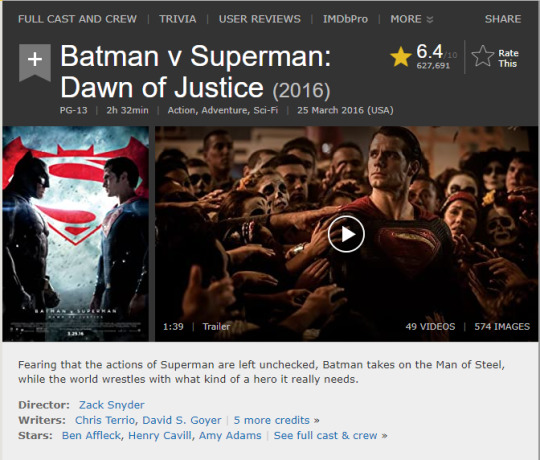
How many fucking times must I talk about this movie?
I feel like this movie doesn’t need an introduction. Everyone knows this film. Its reputation precedes it. It didn’t bomb and it’s not generally considered one of the worst films ever made (at least on the level of films like Robot Monster or The Cat in the Hat), but this movie is easily one of the most divisive films ever made. This film has generated enough arguments that, if we harnessed the energy of all the flame wars it has caused, we could probably power the entire world until the heat death of the universe.
With the impending release of Zach Snyder’s bloated redo of Justice League, I’ve decided to go back and ask myself of this film here… is it really that bad?
THE GOOD
Here comes the most uncontroversial opinion: the action scenes in this movie rock (or at least two of them do). The standouts are the titular showdown, which almost makes sitting through the rest of the movie worth it, and the epic warehouse fight Batman gets into, which is like something straight out of the Arkham games. It’s so good. And aside from that, a lot of the cinematography in the film is good. The film knows how to look good, though unfortunately it does end up being a lot of style with little substance.
youtube
On the subject of Batman, I think Ben Affleck is a great and inspired choice. I certainly think he’s worthy of standing alongside Batmans like Clooney and Keaton, easily embodying both the Dark Knight and Billionaire Playboy aspects fairly well, though the writing does not always handle him quite as well as it should (we’ll get to that soon enough). Henry Cavill, while still a rather dour Superman, is as good as ever as Superman, and Gal Gadot as Wonder Woman was a great choice here, especially since she didn’t have control so that she could insert anti-Arab racism, like some DCEU movies.
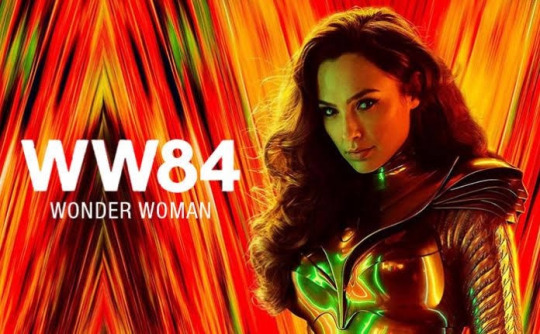
Perhaps one of the movies most impressive feats is how, in an uncharacteristic moment of brevity, it manages to condense the backstory of Batman into the prologue, getting it out of the way and not making us sit through yet another Batman origin film. This is literally the only thing the movie has over the MCU; where that franchise just has the character Spider-Man inexplicably in existence without even a hint of his origins, they just get Batman’s tragic backstory out of the way so we can see him beating the crap out of people. If more superhero movies want to take this route and just condense the backstory into an opening montage like this, I’d be down for it.
THE BAD
I really could just say “most of the movie” but that’s such a cop out. Let’s actually look at the problems. Let’s work our way up through the things from least problematic to most, shall we?
The best place to start is what Zach Snyder did to Jimmy Olsen.
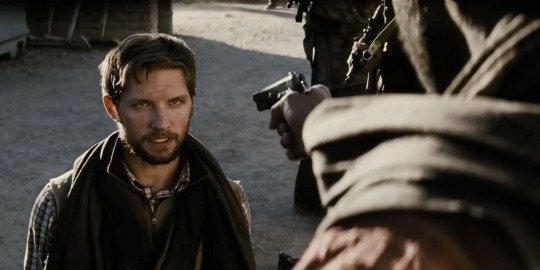
Jimmy Olsen is made into a CIA spook who is brutally killed early on, and yes, that was Jimmy Olsen. Snyder put him in to shock audiences with his senseless murder, and also because he felt the character had no place in his series. Does making Watchmen just turn people into joyless husks who like to horribly bastardize iconic characters? Jimmy Olsen is ultimately a small microcosm of the film, but he is the sum total of everything wring with the early DCEU. He is bleak, soulless, and shows a critical lack of understanding about the comics and why people enjoy them.
Now let’s move on to the more exciting problem to discuss: the villains. I don’t even think it’s worth wasting much time discussing what’s wrong with KGBeast. While it is kind of interesting they’d think to use the guy at all, the fact he never dons the costume and dies by the end of the film is unfathomably lame for a character named KGBeast.
Now, onto the main antagonist, and the most infamous part of the movie: Lex Luthor.
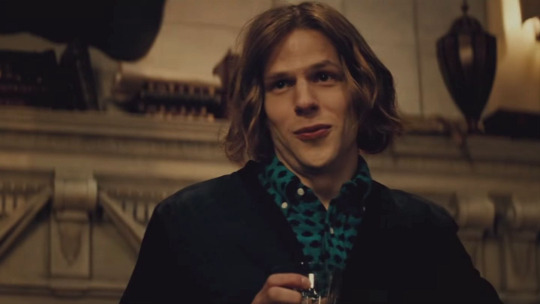
Lex Luthor is horribly, horribly miscast. Jesse Eisenberg is a great actor for sure, and he’s effective in movies like Now You See Me, The Social Network, and the Zombieland films. But here he is being asked to play one of the most diabolical cunning geniuses in comic book history, and rather than play him as such, he plays him like a cartoonish twit. This Lex is utterly unrecognizable as Superman’s greatest foe. Does anyone think Lex Luthor would send a jar of piss to someone as a joke before he blows them up? That’s more something the Joker would do on an off day. Lex is not cunning, not intimidating, and not diabolical in the slightest, and yet there are moments where Eisenberg’s acting chops shine through and Lex, for a moment, is almost engaging. Luthor really suffers the way Doctor Doom tends to in film adaptations: the filmmaker clearly doesn’t get why people like the villain, and decide to do some weird, unique take that will only cause to alienate fans.
But perhaps the worst of them all is Doomsday. Doomsday has exactly one claim to fame, and that’s killing Superman, so as soon as he shows up if you have even a passing awareness of the character you know how the movie is going to end, which robs the film of tension for its last battle. The fact he also appears with little buildup and doesn’t have any characterization doesn’t help; Doomsday is just the Big Gray CGI Blob that superhero movies try and pass off as a final boss for the heroes to fight. This has worked precisely once, in Iron Man. The Incredible Hulk and Venom did not make it work, and this film is nowhere close to being in the same ballpark as Venom.
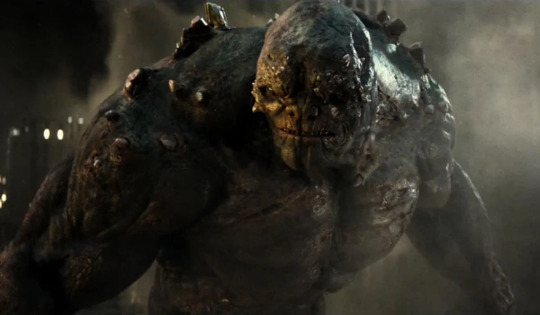
By and far the biggest problem, though, is the movie’s incredible length and its very existence in the franchise at this point in time. This is an epic superhero crossover in which two of the biggest comic book characters of all time fight and then team up… And it is the second movie in a franchise. While they do a good job of establishing Batman rather quickly, Wonder Woman comes out of nowhere. And then at the end, Superman ‘dies.’ We have had one single movie prior to this to make a connection to the guy, and yet here he is getting a temporary comic book death with no buildup whatsoever that we know is going to be reversed sooner than later because the movie telegraphs this to us.
Imagine if, instead of building up the character over the course of a decade and putting him in all sorts of different stories, the MCU went right from Iron Man to Endgame. You go from a simpler, character-driven piece to a massive crossover where a hero dies right away, and it doesn’t give anyone time to care. Tony Stark had multiple films worth of characterization under his belt before they threw him in a crossover, let alone killed him, but Snyder expects you to give a damn about a Superman who just started his career in the previous movie of a franchise.
And the ass-numbing length of the movie is no justification. Even before the director’s cut came out this film was a slog, and the director’s cut really does nothing to earn its existence. All it does is add more runtime to an already tedious and bloated film, leading to the same exact ending and fixing none of the overarching narrative problems of the thing. The problem with any director’s cut is that ultimately the movie is still going to be Dawn of Justice, it’s still going to lead to extremely rushed character decisions, and it’s still going to be a mess. You’d have to redo half of the film to make this into a worthwhile and coherent narrative that’s actually worthy of being an entry in a superhero franchise.
And to top it all off, the movie spends far too much time foreshadowing for its own good. People criticized The Mummy for shoehorning in way too many shared universe elements right off the bat, and if that movie was bad for it, so is this one. The cameos from all the members of the Justice League, while striking, could be excised from the plot with little to no impact, and the Knightmare sequence is just excessive and weird.
youtube
Is It Really THAT Bad?
The answer to this question has never been harder.
On the one hand, this film does have some merit. There is some good casting choices, good cinematography, good action… But then, on the other hand, the film is overly long, pretentious, has poor writing and dialogue, mishandles everyone aside from Superman, and is just incredibly unpleasant.
This film is in many ways the exact problem Christopher Nolan created with his Dark Knight trilogy. Nolan, by grounding the fanciful characters of comic books into a realistic setting, created a climate in which someone could suck any sort of joy or meaning out of comics. The success of his films meant that people would see dark, gritty realism as preferable to joyous, colorful escapism, and the negative effects of his films, however good you find them, are still felt today even as filmmakers are finally shaking off the grit. Dawn of Justice is the zenith of Nolan’s style of superhero film. There is nothing fun, joyful, or engaging to be found here; it is simply the characters you know and love forced into dark, miserable scenarios that ends in death and misery. Where’s the fun? Where’s the color? Where’s the wonder, the excitement, where is any of it? This film paints a bleak and miserable and hopeless picture of a world of superheroes. It really makes me think of this rather famous comic panel:
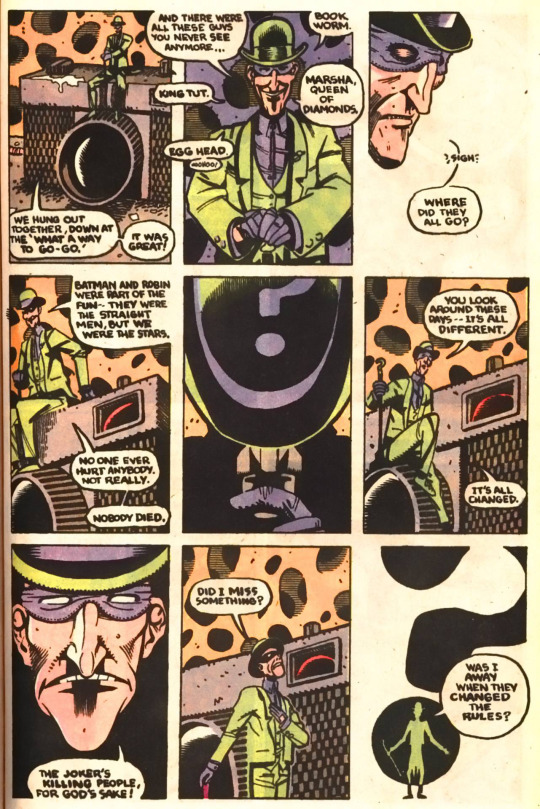
I absolutely hate this movie, but not because I think it’s bad. I hate it because it has enough good ideas where it should be the best thing ever, but it really isn’t. It’s a miserable slog of a film that does nothing to justify or earn its massive runtime whatsoever. It really does belong somewhere between 5 and 6 on IMDB, because I can almost see why people like it, but it just isn’t even remotely close to being how good its fan say it is. This is not a good superhero movie, and this is not how we should want superhero movies to be. There is a market for serious superhero fare of course, and there’s no reason that these films can’t engage with mature themes or anything, don’t get me wrong. But this is absolutely not the way to do it.
#Is it really that bad#IIRTB#Review#movie review#Batman v Superman#Dawn of Justice#Zach Snyder#Batman#Superman#DCEU
26 notes
·
View notes
Text
Disability and James
@zarohk asked for my thoughts on a Disability Studies/Media Studies perspective on the disability depictions in Animorphs. [PLEASE NOTE: I am nondisabled, so if I err, please tell me so.]
I’ve mentioned before that James is one of my faves, and possibly my favorite minor character who isn’t a yeerk host. His introduction pulls off a seemingly impossible feat through not only creating a likable Sixth Ranger, but creating a likable Sixth Ranger who comes after David. James is also a complex, nuanced character whose disability is a feature but not a summation of his personality. Plus, he’s a masculine boy who is all about about nurturing others, which always makes me happy.
A few places where I commend the depiction of James:
He leads a social community of disabled kids who help each other. It’s a big part of third-wave progressivism to emphasize sub-communities and various identities helping each other out: women supporting women, queer pride, Latinx-American culture, etc. That’s what we see with the Auximorphs, especially James. James’s motivation is somewhere between 99% “help my roomies” and 100% “help my roomies.” His initial response to Jake and Cassie explaining the war is “so what, a bunch of ableds are gonna get taken by yeerks, not my problem.” It’s only when Cassie points out that the yeerks are eugenicists who murder disabled humans that he switches to “okay, I guess we’ll go fight in your stupid war.” He insists on even the kids who won’t be fighting (Pedro, Tuan) getting the power to morph, and tells Jake that he’ll take suggestions but not orders.
He emphasizes his own and Pedro’s bodily autonomy. James actually goes so far as to throw Jake onto the floor when Jake tries to grab his wheelchair — a move that emphasizes James has the right to move his own body around, and that that includes prostheses. Everyday ableism too often involves random strangers taking charge of the bodies of disabled people, attempting to guide blind pedestrians or push wheelchairs around without asking permission to move a person’s body like that. "My body, my business” is obviously a huge motif in Animorphs, and James pretty explicitly extends that to prostheses as well as fleshy limbs.
He’s nobody’s sidekick, and nobody’s fool. When the Animorphs first tell James that they’re alien-fighting shapeshifters, he assumes that they’re here to prank the disabled kids who they think must be desperate for attention. He barely gives them the time of day even when they prove themselves, and he doesn’t “play nice” even when they add him to the team. James defies the cliché of the disabled kid desperate for the approval of nondisabled peers, and specifically calls it out. He’s the leader of a semi-independent unit who has his own agenda, rather than being at the original Animorphs’ beck and call. Like Toby and her hork-bajir, he’s here to make sure that his group and his loved ones don’t get left behind when the war ends and intersectional identities threaten their rights once again.
He kicks ass. James is competent, tough, skillful, and self-confident with or without the Animorphs. There’s a fairly realistic period where he has to learn the basics of morphing along with the other Auximorphs, but once he learns he’s highly effective. He saves Jake’s life during the Air Force battle (#53), rescues the original Animorphs from Tom’s yeerk (#50), and helps Ax and Cassie escape a mob of morph-controllers who have them cornered in a subway tunnel (#52). He’s agentic and powerful, something we don’t see enough of in disabled child characters.
He emphasizes that the more-privileged communicator has to be the one to do the work of meeting in the middle. Cassie notes in #50 that James puts in a lot of work to communicate with Pedro (who is paralyzed) and Timmy (who has a speech disorder). James is the one who can hear/speak in a fairly normative fashion, so James often “translates” for Timmy — but he always does so by letting Timmy finish a sentence rather than cutting him off by trying to guess what he’ll say next. James is the one who can work the stereo in his and Pedro’s room, so he makes sure that he always lists genres and waits for a blink of confirmation before he changes the music. James also defers to Pedro’s request for country western in spite of being a punk rock fan himself, because James remains conscious of the fact that if he doesn’t like the music he can always leave the room, while Pedro doesn’t have that option.
He’s thoroughly individuated. James likes Blink 182 and dislikes reality TV. He uses his morphs for agility — peregrine falcon, lion — more than firepower. He spends a lot of time on his hair, and he treasures privacy as much as he values his friends. He repeatedly calls Cassie and Jake on their bullshit, in spite of being visibly scared to do so as the new kid on the team. One wouldn’t necessarily think that these are huge accomplishments (and to be clear, they’re not) but there are way way too many minor characters in wheelchairs, especially sci-fi stories, that don’t get characterized beyond their various emotions and thoughts that directly relate to their wheelchairs.
A few places where James falls into the common traps of implied ableism creeping into fiction, as written about in Narrative Prosthesis:
He gets “cured”. The fact that James’s body is, however implicitly, depicted as a “problem” that must be “fixed” suggests that the theoretical ideal point is the nondisabled body he would have had if not for the car accident. Like I said, it’s 100% fine if a disabled character gets written as preferring to be nondisabled, but if the series offers the unquestioned assumption that the “correct” body is the nondisabled version, then that’s... not great.
His disability is presented as a mystery that needs solving. Like Loren, James gets presented with an implicit frame of “why are you like this?” that assumes his body is “abnormal” and therefore begs a question. In James’s case, it comes in the form of Collette explaining why he’s disabled (a car crash) before we ever even hear from James himself. Again, it’d be fine if this was the only time this happened, but the fact that the series “explains” almost all of the disabled characters (Taylor, Loren, Mertil, Kelly, Pedro) suggests that disability is something that needs explaining because it’s aberrant.
Some of the physical descriptions of James are a bit eugenicist. After he first demorphs, Cassie says “standing over the group now, steady and strong, was James. He was taller than Jake, broader-shouldered... long and muscular” and describes how James helps to carry the other Auximorphs as they acquire battle morphs (#50). James gets presented as a contrast point to the Auximorphs who remain disabled, because his body is presented as “correct” while theirs are not. If it was just Cassie, that’d be one thing, but Ax says “unlike James, the others are physically helpless” (#50) and later Jake describes the contrast between James being strong and the other Auximorphs being “weak” and “faintly pathetic” (#53). In the process, the descriptions tie together the ideas of being masculine, being independent, being physically strong, and being worthy of respect. American rugged individualism, especially as it applies to white men and boys, has a dark side in that it often regards physical dependence on others as a sign of cowardice or weak will or moral failing. That assumption underwrites some of the way that James gets described by the other Animorphs.
He gets killed. By killing off James and his fellow Auximorphs, the series falls into the “kill or cure” narrative that Mitchel and Snyder trace throughout history for the overwhelming majority of disabled characters. Disability is too often presented as being necessary to “solve” through death or cure, to the point where the Fries Test (designed to be a minimum threshold for disability representation, like the Bechdel Test for women) requires that disabled character(s) make it to the end of the story without being eradicated through cure or kill as the bare minimum condition that a story be somewhat less ableist. Animorphs does not pass the Fries Test, because it eradicates its disabled characters through a combination of cures and kills.
Specifically, he gets��killed to manipulate the emotions of a nondisabled character. When Visser Three kills James, the moment is presented through Jake’s point of view, and it leads up to Jake’s decision to flush the Pool ship. Maybe my biggest frustration is that that moment only serves to cause Jake pain and help push him off the rails. It doesn’t change the plot of the final battle the way Tom’s death does, it doesn’t stop to give James a conscious choice the way Rachel’s death does, it just makes Jake sad and mad and reckless. It’s the same dang dynamic as women in refrigerators: the less demographically privileged character becomes a prop for a more-privileged protagonist to have emotions about.
Anyway, to say it again: none of those individual elements of James’s story — death, cure, urgent backstory — would be necessarily problematic if there were equally-major disabled characters in Animorphs who didn’t demonstrate those elements. It’s the fact that James demonstrates all of those elements and so do most of the other disabled characters that makes me wish the series had done better.
#animorphs#animorphs meta#animorphs criticism#james#auximorphs#50#53#disability representation#representation#james animorphs#disability#social model of disability#long post#ableism#disability studies#media studies#q word
164 notes
·
View notes
Text
Star Wars: The Clone Wars (Seasons 1--6), Final Analysis

Well, I made it through.
Let’s be absolutely clear: The Clone Wars (TCW) is not good television. For the most part, it’s not even watchable television. The show suffers from serious fundamental issues in nearly every aspect of storytelling. Characters are underdeveloped and inconsistent; the dialogue is expository and contradictory; the tone is disjoint and jarring; and most episodes serve no greater purpose than to be a twenty-minute vessel to house lightsaber fights.
So I want to put this part of the show to rest before I move on to Star Wars: Rebels (and before returning to watch season 7).
With two exceptions, the show poorly handles twists and reveals. In the earlier seasons, reveals were spoiled mostly due to telegraphing: Captain Sleaze in Cloak of Darkness, Senator Clovis in Senate Spy, and Yolo (?) in Senate Murders come to mind, but there were others. In later seasons, telegraphing was supplanted by “small universe syndrome” as the primary cause of spoiled reveals. In The Academy, a cloaked figure was seen doing shady, back-alley deals, but his identity could only have been the Prime Minister. During the “Ahsoka framed” series, Barriss was obviously the traitor, simply because her character suddenly reappeared after four seasons and there were no other candidates.
Probably the most successfully executed reveal was that of Krell, as his assholeness was at least initially masked as military rigidity. But even so, it was so over-the-top that when the reveal finally came to light, it felt more like an overdue disclosure than a dramatic twist. It didn’t help that, by that point in the show, the format of “asshole = upcoming reveal” had been firmly entrenched into the show’s DNA.
I would argue that the most effective plot twist of the entire show was when the dancer/singer girl shot and killed Ziro the Hutt in Hunt for Ziro. Although irrelevant to the greater story, it was an actual twist because it was strongly implied the opposite would happen (i.e., Ziro would betray the girl). If there is to be a second place, that award would go to Ahsoka’s decision to leave the Jedi Order at the conclusion of The Wrong Jedi. But this leads me into my next point...
Who was the main character of The Clone Wars? If we go by the logic that whoever had the most screen time was the main character, then Anakin probably wins over Ahsoka. But if we go by the logic that the most developed character was the “main character,” then this is a show about Ahsoka. Ahsoka---more than any other character---grows in a noticeable way (from impatient, violent child to impatient, slightly less violent teenager). In contrast, Anakin in Rising Malevolence is the same character as Anakin in Voices (only a little more violent and angry for some reason).
It’s unfortunate that her major character moments were never capitalized on. Intentionally sacrificing herself for the greater good in Weapons Factory apparently led to no lasting repercussions on her character. Her impatience and disobedience led to the deaths of thousands in Storm over Ryloth, but was similarly forgotten immediately afterwards. Even Ahsoka’s major character moment at the end of The Wrong Jedi resulted in her walking away from the show, never to address the implications of that decisions (although I suppose that’s the subject of Season 7).
On a different note, the show was riddled by a shameful amount of “references” and fan service, for reasons exclusively external to the story. These “nods” ranged from the obvious “Obi-wan Kenobi, you’re my only hope” (or whatever Senator Jimmy Smits says in Cat and Mouse) to the innocuous design of a droid or background device.
These “references” are objectively problematic for at least a few reasons. (1) They contribute to the sense that the universe is a really, really small place. Is the Mos Eisley cantina really the only place in the Outer Rim where shady deals go down? Is carbon freezing really the only way to store a person in stasis for transport? How long do Rodians live for anyways? Greedo’s gotta be what, like 80 when Han shoots him in A New Hope? It’s ironic that ultimately, this incomprehensibly large, diverse galaxy actually feels much smaller after watching this series because we keep going to the same twelve places...
(2) “Fan service” is tricky to get right because different people have different memories and impressions of the source material. In result, copying material will oftentimes comes across as a blatant misunderstanding of the original content. For example, to me, Vader put Solo into carbon freeze because it’s what Lando had lying around. It’s not a galactically established method of transporting people. Obi-Wan trained Luke with those laser balls aboard the Falcon because Han had them lying around and Obi-Wan needed to improvise a training exercise to kill time.
(3) "References” and “nods” usually are just a band-aid for a lack of creativity. Some of the better episodes in the initial seasons were just direct rehashes of famous movies. Seven Samurai, Godzilla, Stray Dog, The Most Dangerous Game, King Kong... I mean, it’d be pretty impressive to mess-up stories like these, but it’s concerning that there were just so many episodes made from other people’s stories.
These “references” even seep into the most innocuous of scenes. When Prequel!Wan lands on Mandalore to attempt a rescue of Satine from Darth Maul, one of the Mandalorians takes aim at him, only to have their blaster pushed down by their companion who’s shaking their head. This is a direct reference o the Tusken Raiders on Tatooine when Luke went after R2 in the desert. Even if this scene served an important plot purpose (it didn’t), there’s undoubtedly a multitude of ways to communicate the same thing. Instead, a small reference to the OT is interjected into the show, deimmersing the audience from the events shown. Unfortunately, this is just one (very small) example of hundreds over the whole show.
Let me say something positive. The episodes that worked best (especially early in the show's run) were ones that focused on mortal people, usually the clones. Innocents of Ryloth was one of the first watchable episodes, simply because we didn't have to sit through twenty minutes of unlikable, unrelatable “Jedi” and instead followed around a pair of troopers helping a little girl using their limited abilities. Likewise, Pursuit of Peace was way more enjoyable than it probably should have been, simply because the story was understandable, the consequences clear, and the drama real. Plan of Dissent (when the clones actively rebel against Krell) was also noteworthy for similar reasons: clones we liked must subdue a “Jedi” we’ve learned to hate.
This isn’t to say that episodes focused on the major characters were inherently unenjoyable, it’s just that none of these characters had any room to grow (with the exception of Ahsoka). Dooku, Grievous, Anakin, Prequel!Wan... They were the same characters as portrayed in Episode II and III. As presented, there was nowhere for these characters to go. Dooku was literally identical at the beginning of the series as he was at the end, and the same can be said about the others.
But these are false constraints the writers imposed upon themselves. Grievous was not in Episode II and was introduced in Episode III. TCW could have started him however they wanted and then illustrated his change into the character he later becomes. Who was he? What was his motivation? Why did he hate Jedi so much? The show was handed a completely clean slate to deliver a character from scratch, but instead we were immediately shown “Episode III General Grievous” with zero introduction because fans were expected to already know who he was.
This is partly why the backstory episode to Grievous was so compelling, at least in premise: viewing his home was personal to his story and it represented a chance to learn a bit more about the character and where he came from. Of course, it was mostly mishandled by a reliance on meaningless action, but the high ratings of that particular episode suggest there was room for quality television here, it just was never capitalized on.
Instead, we have completely static caricatures, especially for minor characters from the movies. Admiral Tarkin, Admiral Ackbar, Greedo (among others) were written out of cardboard and their roles in the plot could have just as easily been played by anyone else (there was nothing unique about their roles that required them to be these characters).
This is a shame because a lot could have been done with the established premise to really focus on Anakin, his motivations, and his relationship to his Padawan. I would have been okay with a lot of backtracking if it meant I could begin to grasp his “fall” to the Dark Side. Instead, I’m honestly more confused than ever about his motivation.
One argument is that Anakin joins the Dark Side because he like, “loves” Padme (or whatever). However, what we’re shown in this show---consistently, clearly---is that Padme and Anakin have a toxic, dysfunctional relationship. He is uncomfortably jealous and rarely trusts her. They argue nearly every time they’re together. Their “love” (or whatever) must remain secret, equating their relationship to something “wrong” or even “illegal” that must be kept secret, even on the verge of death. In a later episode, Anakin orders Padme to listen to him because he’s the “man” and, as his wife, she doesn’t have a say in the matter. This is clearly a broken relationship and the best result is the one that actually happens: They stop seeing each other. Anakin wants to save this woman from a vision? Why?
This brings up a second point, which is that Anakin can’t stand the pain of losing someone. His desire to protect those close to him may be Anakin’s only redeeming trait. He has a single selfless scene (in the entire show) during the opening of Jedi Crash where he sacrifices himself to delay an explosion and save his companions. I want to stress that any other scene where Anakin saves or helps someone isn’t done because he’s a good person, it’s done because he’s a broken person. It’s done because he, personally, would struggle with the emotional toll of knowing he allowed someone close to him to be hurt or die. In other words, he’s doing nice things for selfish reasons.
As far as I’m concerned, Anakin has always been Darth Vader. He is given choices between being a Jedi and allowing a lot of people to die, and he enjoys choosing the second. In Ghosts of Mortis, we’re shown that the threshold between “Anakin” and “Darth Vader” is disconcertingly low, requiring only a few choice words and less than a minute to convert him. In short, what I’ve learned from TCW regarding Anakin Skywalker is that he was an unlikable dick, and his “turn” to the Dark Side was just a long-overdue reveal.
While the later seasons worked towards the events in Episode III in a way that at least made a bit of sense, earlier seasons were focused on adult-themed wacky hijinks. In a way, the show almost would have worked better as a kid’s show, but this was clearly meant for adults: politics, war, slavery, and lots and lots of horrific violence. In comparison, the silly adventures of Star Wars: Resistance worked well because the show didn’t take itself too seriously. It was very clearly, from the start, a lighthearted show about kids going on fun adventures. In contrast, TCW suffered because its themes were adult in nature, but was portrayed as a Saturday morning cartoon show. The humor was misplaced, the tone disjointed from actual events, and the violence excessive.
Let me say a few words on the “Jedi.” Initially I labeled them as overpowered (OP), because in earlier episodes they seemed invincible and dissolved tension in every scene. Later, we see a slew of them get cut down as plot fodder, even against widely different situations. We see Luminara and others push through hoards of droids only to see “Jedi” Master Yoda-like dude get taken down by a dog. We watch as Fisto *heh* powers through entire battalions and the cone-head guy counting coup against an army, only to watch as pink girl gets shot in the face by a single clone who stands in front of her for several seconds before pulling the trigger.
It’s nearly impossible to feel tension in these scenes because the metrics for judging the true strength of a “Jedi” keep shifting as a function of the plot requirements. Anakin suddenly forgets how to use the Force when the plot needs his help to fake some drama. Prequel!Wan pointlessly fist fights with a slaver cat for an hour until the plot needs him to get back up again and OP everyone in the room. Even their ships are only as strong or weak as the plot needs them to be. Plo Koon’s fleet is devastated in seconds in order to portray the Malevolence as being a threat; Anakin’s fleet powers through a larger force three times its size because Anakin’s like, really mad about something.
Secondly, the “Jedi,” in general, were unlikable assholes. They were consistently portrayed as violent and ignorant and I struggled to understand them as real people. Frequently, we witnessed them torture victims, default to a lightsaber to solve problems, and enjoy death to the point of counting coup against sentient life forms defending their homes. Anakin threatened civilians with his lightsaber. Ahsoka was annoyed when she’s asked not to murder a defenseless creature in Jedi Crash. Prequel!Wan and Anakin team up to hurtle enormous rocks into a beaten monster in Dooku Captured. A trio of Jedi Masters mentally gang bang a shackled Cad Bane. They supported state terrorism when it suited their needs, but agreed to abandon their friends for political reasons.
I mean, these are not good people...
This is a shame, because my impression of true Jedi comes from Luke, Yoda, and Obi-Wan in the OT, as well as the expanded universe novels that take place afterwards. It always seemed to me that being a Jedi was about conquering oneself, one’s fears, and learning to use the Force to selflessly help others and let go of all worldly attachments. You know, like the Buddhists they were originally inspired by. I always had the impression that the Force was extremely powerful and that Yoda was only showing Luke a portion of what was possible. That the Emperor was only using Force lighting to toy with Luke. That Vader only Force choked his officers because it was visually intimidating and kept them in line.
Instead, we’re treated to some garbage about how a “Jedi” is nothing greater than an actuator to swing around a lightsaber. When Luke enters Jabba’s palace in Jedi to rescue his friends, it’s not with lightsaber swinging, cutting shit up, flipping around like an acrobatic monkey. Imagine Anakin and Ahsoka in the same scene. They’d blaze through the palace corridors before Force choking Jabba as the Darth Vader theme plays. Forget the rancor, these are demigods. They have lightsabers. Have you seen them? They go “woosh woosh.”
In short, there was little to look up to in terms of a “hero” character. I can see how children can look up to Luke as a role model, someone they want to emulate or play with as a toy, but looking up to Anakin? Ahsoka? Hey kids, wanna learn to become a psychopath? First, you use your power to abuse those who are weaker than you. Then you need to get really really angry and uncontrollably choke someone, preferably your sister or one of your cousins.
And so, for a Saturday morning cartoon show, it is very unclear who we’re supposed to care about. I liked when Ahsoka went against Anakin because I hated his character so much. I liked everything with Hondo, a pirate. I liked Ventress a little, because she was actively seeking to kill the main characters. I liked some of the clones, but I don’t know which ones because they all looked the same. I cared about Darth Maul because I’m honestly a little worried about him, especially after the loss of his brother. I kinda liked General Grievous just because he hates the “Jedi” and was therefore relatable (even though the reasoning was never explained). And... that’s it.
At no point did I ever “look forward” to the next episode. I painfully died a little on the inside hitting the “watch next” button every single time.
This “review” is already way too long, so let me summarize by applying my five-star rating system (developed for movies) to each episode. In review:
5. Amazing, classic, culturally important. Something everyone should watch. 4. Great; very well done, no significant flaws. 3: Entertaining with only minor gripes/criticisms. 2: “Watchable,” but suffers from flaws and has some poor parts. 1. Uncomfortably bad; suffers from serious flaws. 0. Painfully bad, would actively fight against being forced to watch a second time.

The 3-star episodes were:
Hostage Crisis
Lightsaber Lost
Pursuit of Peace
Carnage of Krell
The Wrong Jedi
Hostage Crisis was the introduction of Cad Bane, Lightsaber Lost was the remake of Stray Dog (and the only episode to include a real Jedi), Pursuit of Peace was the random Padme/politics episode that was strangely well-executed, Carnage of Krell was the reveal of Krell as a bad guy and his clones working to apprehend him, and The Wrong Jedi was Ahsoka leaving the Jedi Order (and the only episode to include a true character moment).
Also, I scaled the IMDB ratings of each episode to my ratings and then detected outliers in their overlap. In other words, I wanted to answer the question, “which episodes did I rate the most differently from others?”
Turns out, I rated every single episode lower except for seven. Those seven were:
Mercy Mission (+1.853) - R2 and 3PO discover an underground world with ents. This one is universally panned by “fans,” but was a competently handled episode apart from the disappointing resolution.
Pursuit of Peace (+1.382) - Padme struggles to win support for a Senate bill. Another competently handled episode that focuses on Padme and politics and is ranked low by “fans.”
Lightsaber Lost (+0.6471)
Weapons Factory (+0.4118) - An average episode with a dramatic scene of sacrifice by Ahsoka and her “friend” Barriss.
Shadow Warrior (+0.3824) - Grievous is captured during some dramatic moments on Naboo.
Hostage Crisis (+0.3529)
Front Runners (+0.0882) - One of the rebels episodes, I don’t remember which.
In conclusion, Star Wars: Rebels is next and I am somehow still alive.
16 notes
·
View notes
Text
I Need to Talk About “Problematic Faves” within TWDG [2/?]
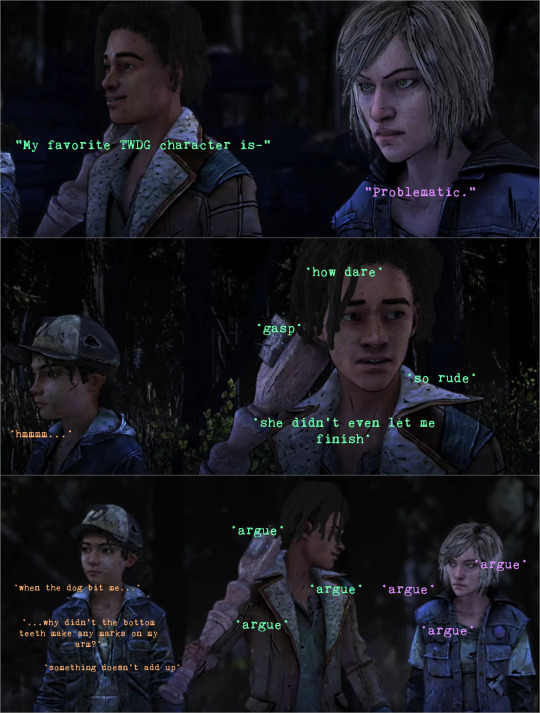
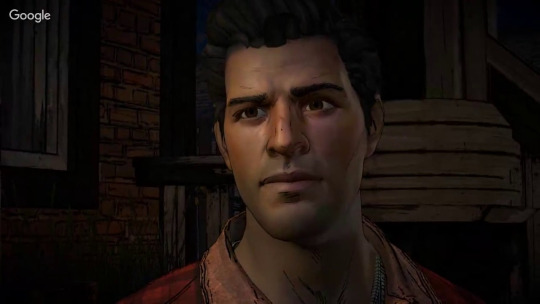
Backstories, the introduction of these characters and the importance of first impressions.
"Nice to meet’cha, I’ll be your disappointment for the evening.”
When I first started questioning why I like David as much as I do, I thought back to when we were first introduced to him in ep1.
He didn’t leave the best first impression since the first words out of his mouth are along the lines of “You’re a real piece of shit.” Plus he, y’know, punches the shit out of Javi for not being there when their dad died.
On one hand, fair enough to be distraught that your father just died and your brother was no where in sight... but, on the other hand, do you gotta get violent?
Maybe it’s just because I’m an only child so I don’t understand how the whole sibling thing works, but punching your brother and then tossing him a beer before saying “I love you” seems.... not good?
But, it’s also very telling in what David and Javier’s relationship is right from the start, and sets an idea for what’s to come throughout the rest of the season.
Say what you will about ANF: it’s a mess, it’s the worst season, whatever. But, when I tell you that it has one of the best openings to a game, I mean it.
Everything about it is damn near perfect. Not only does it start right at the beginning of the apocalypse, but it tells us so much about our main protagonist and his backstory, it establishes the strained relationship he has with his brother and the rest of his family, and it introduces us to the walkers in a different light.
I can’t watch the opening and NOT get chills every time little baby Mariana holds that cup in her hand and says, “Papi’s awake.”
When they go see that Javi and David’s father is up and about after dying, it’s just chaos from there and I love it.
Fight me all you want, but it’s an excellent start to the season.
Unfortunately, ANF couldn’t keep that momentum going, but that’s a whole other discussion for another day.
Back to David, something about the way he was initially presented stuck with me until we finally reunited with him at the end of ep2.
So I thought back to other character introductions, how their backstories came into place, and how it affected their endgame.
A character’s introduction is crucial when it comes to storytelling, whether its subtle or in your face. You don’t want to give too much away, but you want to give the viewer a taste of who this person is and what their importance is in this story in a more subtle but clever manner.
When introducing a character, you have the think about what their endgame is. How is this character going to change over the course of the story? How are the choices of this character going to affect our protagonist, the world around them, and the overall plot.
Knowing these things can help you to sprinkle in little details within their introduction that tie into their endgame.
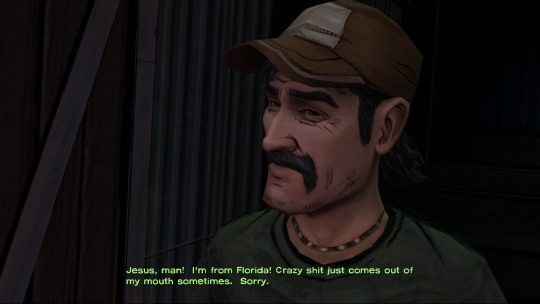
When we first met Kenny back in s1, he was just this dude who wanted to get his wife and kid back to Florida, hop on a boat, and live the rest of the apocalypse with his family on the water.
He was nice and showed concern over how Lee was doing with Clementine. He has a character design that gives away parts of his past as a fisherman before he tells us anything about it, and his accent [+overall voice acting and dialogue] tell us a lot about his upbringing prior to the events of s1.
We only got that glimpse of what was to come of his character after the walkers attacked Hershel’s farm.
Shaun is stuck under the tractor with walkers pushing against the fence and Duck is grabbed. We as Lee are faced with the choice of who to help first: Shaun or Duck?
Regardless of our choice, Kenny obviously runs to save his son. He gets Duck out of harms way, but when Shaun begs for help, Kenny runs away, leaving him to be eaten by the walkers.
This portrays the possibility of Kenny being cowardly, selfish, or someone who freezes up in moments of danger and runs. It also sets up the guilt that lingers in his [and Duck’s] mind all the way through to ep3 and onward.
When you think about Kenny, without knowing what happens to him in ep3, and you have to take a guess about what tragedy could take place to further his development, as well as bring that guilt full circle, what would you say?
Easy. He loses his family. Of course he does. It doesn’t matter if you don’t like it, but it makes sense that this would happen based on our first meeting with him at Hershel’s farm in conjunction with the themes of the game.
So what does this have to do with him being a “Problematic Fave?”
Uh, everything?
Ever heard of a “tragic backstory?” You don’t think such thing plays into why we loves characters like this?
Kenny the family man has a lovely wife and son. He does everything in his power to protect them, and it’s not enough. He was not enough to save his son, nor was he enough to save his wife.
He lost them both within seconds of each other, being a witness to Katjaa’s suicide and the agonizingly slow death of his son, and he had to keep going in order to survive, even though he had nothing left.
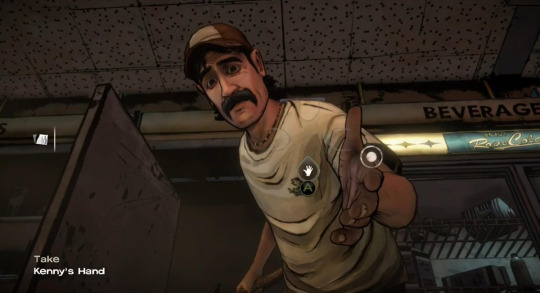
In the beginning, Kenny was a regular John Doe like the rest of us.
He had a job that kept him at sea a lot, he fell in love with a pretty vet and had a child with her. He thought this all would blow over and he could go back to Florida with his family and live peacefully.
Season 1 is Kenny’s tragic backstory.
We got to live this tragedy with him, so when s2 comes around and we’re given his second first introduction in the series, we already have all this knowledge of what has happened to him, what his relationship was to Lee and Clementine, and the assumption that he was already dead.
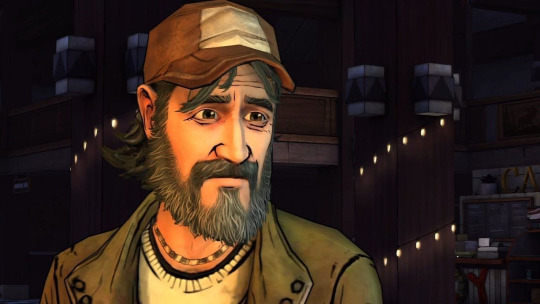
Season 2 was what cemented a lot of people’s love and hate for him.
I have a theory that those who hate Kenny tend forget that 1st episode back in s1, choosing to solely focus on the Kenny from the meat locker in ep2 and all the negative repercussions that stemmed for our choice there, while those who love Kenny tend to look further back and take everything into account when analyzing his character.
They sympathize with the man Kenny used to be, and are struck by this tragedy of who he became by the time s2 ended.
Kenny from ep1 of s1 is not the same person as the Kenny from s2 ep5, and his journey is not only compelling from a character development standpoint, but a huge factor in why he is the favorite character of so many. Few characters are built up and developed that way he is.
But can we say a lot of the same things about Kenny’s introduction in s2 that we can say about s1? Does it drop hints about what Kenny’s potential endgame could be?
Yes, but it’s not quite as effective as it could’ve been.
One of the first choices you make after meeting back with Kenny is whether or not you’ll sit with him at dinner.
It’s a non-assuming choice, one that shouldn’t warrant any big repercussions, right?
Except it’s the games way of presenting us with the choice of siding with Kenny under a more innocent pretense. It’s a taste of what’s to come.
Based on our previous knowledge of him, as well as his seemingly good nature [one that reminds us of the beginnings of s1], we watch the way he presents himself to Clementine and decide if we want to sit with this old, nostalgic connection, or the new connections.
Will you sit with Kenny, or will you sit with Luke and the cabin group?
Will you side Kenny, or not?
This is what led everyone to believe that the final showdown would be between Kenny and Luke, and they really dropped the ball on what they built up here when they decided to replace Luke with Jane.
Kenny’s part still holds fairly strong, but everything about it isn’t as well done as S1.
And because I know I’ll be asked: as for his introduction in S3..... I don’t consider Kenny or Jane characters as much as I’d say they’re obstacles the writers had to throw in to give the illusion that our choices actually affected Clementine significantly when they really didn’t.
He immediately dies in a car accident after being paralyzed and left to the walkers while Clementine runs away with a crying AJ. This does very little for the story of ANF other than to add fuel to Clementine’s own “tragic backstory.”
So I don’t count it here.
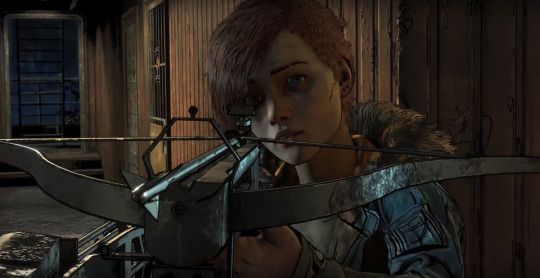
I want to talk about another great character introduction: Minerva.
Minerva is a special case compared to Kenny and other character introductions. We’re not plopped down in front of her like “Hi, I’m Clementine, nice to meet you, Minnie.”
We actually spend two whole episodes only hearing about her, building her character up slow and steady, until we finally meet face to face in ep3.
This complicates our first impressions of her, but only a bit.
The game pretty much tells us Minerva’s backstory:
From what we’re told, Minerva was a sweet, musical girl who didn’t even like killing walkers. She loved her brother and twin sister. She and Violet were in a romantic relationship, and Violet gives us plenty to chew on about how lovely her voice was and how she was such a good friend. Her and Sophie’s “deaths” left everyone at the school devastated to the point where they actually started using their graveyard again.
She almost seems too good to be true, don’t you think?
Then we find out she’s not dead.
It turns out, Marlon and Brody lied about the death of the twins to cover up the fact that Marlon traded them away to the delta in order to save themselves and the rest of Ericson. The truth only comes out after Brody confesses everything to Clementine before her death dealt by Marlon’s hand.
So not only are we told that Minerva was this wonderful person, but that she was traded away with her twin sister to a group of people who, based on our first impression of Abel, are a dangerous threat that’s back for more of them.
Your mind swarms with the worst possibilities of what those people could have done to them, and you even question whether or not they’re still alive.
Until we meet Lilly again and find out the truth: they turned them into soldiers, forcing them to fight in their war.
Keep in mind that this is all apart of Minerva’s “tragic backstory” and we haven’t even truly been introduced to her yet. This is everything that the first two episodes have built up.
We finally get our first glimpse of her in the trailer for ep3.
Everyone goes nuts.
Minerva was so hyped up. Everyone was talking about how good she looked and how they couldn’t wait to meet her and learn what happened from her perspective. Everyone theorized about her role in the next two episodes and how maybe we can enlist her help in getting our friends back and reuniting her with Tenn and-
Then we get actually meet her.
Turns out, she is none of the things the game told us she was.
Not anymore, at least.
She is not our friend or our ally and she is not going to help us get our friends back. She is fully brainwashed into the delta, and that’s the tragedy of Minerva’s first real introduction.
She is a betrayal of everything we’ve been told due to the crime Marlon made of trading her away. We will never get to meet this Minnie we heard so much about.
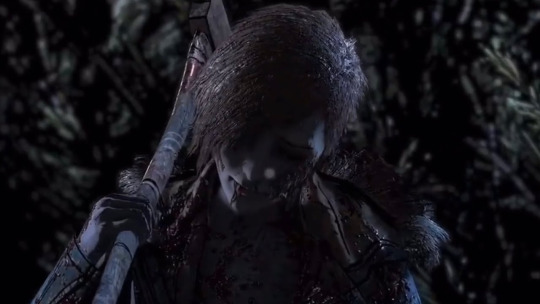
Instead, we get the husk that remains.
This husk is one of our antagonists for the rest of the game.
Knowing all of this, why do people still love her? Why are there fix-it fics and AUs where Minerva is “saved?”
Because we all wanted to meet the Minnie we heard so much about, but instead, we got Minerva, the brainwashed soldier from the Delta who, under Lilly’s fucked up rule, killed her own twin sister in order to prove her loyalty to the group.
We wanted Minerva to be on our side, to betray the delta for the school she once called home. But she didn’t.
Instead, she became our final antagonist of the whole series.
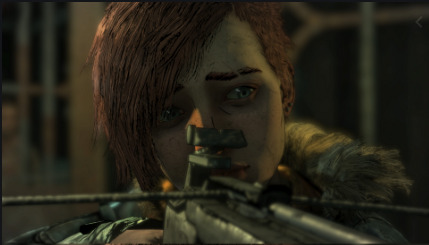
Minerva, like Kenny, is a tragedy and we like that.
I don’t mean that we like it as in “I’m so glad those horrible, traumatizing things happened to you!” but we like it in a way that it colors these characters gray.
Suddenly, their behaviors are not portrayed the way they are just because they’re the “antagonist,” but because they’re a complex, three dimensional character. The game didn’t hand them to us and say “They’re evil, that’s all you need to know.”
They took the time to flesh these two out in a clever way that got to us, either in a positive or negative light.
We are drawn to gray characters with interesting, albeit tragic, backstories that we can sympathize with.
But, when you consider that this IS the apocalypse, doesn’t everyone have one of these “tragic backstories” in this series? Just like how everyone is actually a “Problematic Fave?” Does this really play into why we like them when it’s not even something unique to their character?
That’s a good point, so in order for us to like a character like this, do they have to have an even more intense, tear-jerking past than the rest in order to stand out?
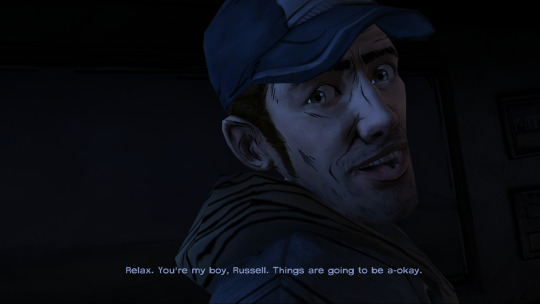
Well... no.
Nate’s the easy example for this one.
I honestly don’t know what this dude’s about, and I don’t know if I even care, but somehow Nate tends to end up on everyone’s “Favorite Characters from 400 Days” list.
Granted, he is a bit of a refreshing character to run into in this environment, what with him being so laid back, sarcastic, gross, and even sadistic in a way that’s mean to be comedic.
But what do we even know about him or where he came from?
Well, we know that he’s apart of the group that fan-favorite Eddie accidentally shot at, leading Nate to chase after him and Wyatt as a form of revenge. After that, he picked up Russell and headed back to a gas station where that old couple shot at them.
The old man reveals that Nate’s been there before and attacked, stating that he’s here to finish them off. Nate denies this, but asks if Russell and him should finish them off and take all their stuff.
From there, who the hell knows where this dude went.
But that’s all we got.
No “tragic backstory” from Nate, no implications of one, unless we missed the nonexistent detail that his previous group was his family or something. Even then, he doesn’t seem so concerned about the state of the world. He doesn’t have an issue picking up a random kid who could be dangerous. He was bored, after all.
Nate is a character whose backstory has nothing to do with why people love him. He’s an oddball out, in this case.
It’s a different story when talking about how he’s introduced, though. This is where he has most in common with Kenny, Minerva, and all the rest of these “Problematic Faves”: He has a great impression.
Well, assuming that you played Russell’s story before Wyatt’s, I suppose.
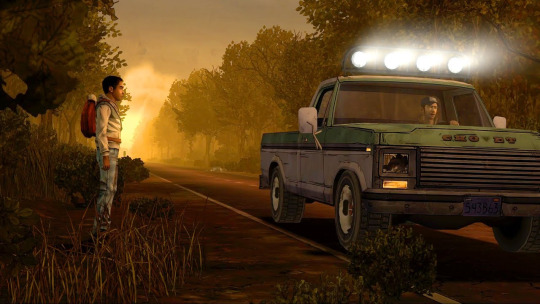
Nate’s likable, albeit insane, character isn’t dependent on who he was before or how he suffered. He’s a character who represents those in the world who thrive in times of disaster, choosing to take it as it comes, do whatever it takes to survive, and even get a sick thrill out of doing these problematic things. Odds are, life was boring before and now he truly gets to live. That’s all made clear in how he presents himself to Russell and the player.
And.... I guess it worked? He is the “Problematic Fave” of a handful of people int he community, after all.
Now that we’ve discussed three separate characters and their backstories, how they’re introduced, and how these two things affect their role within the story as well as our feelings towards them, I want to touch on one more thing before I go back to David.
What does all of this say about the people who throw this annoying phrase of “Your fave is problematic” at those of us who find these characters with great backstories compelling?
Do they not care or understand these backstories or what the introductions meant? Do they ignore them so that their perspective seems to be the correct answer? Are they so quick to judge based on the surface level that they don’t bother thinking twice about anything?
Do they feel that this character has wronged them, therefore they find they can’t bring themselves to tolerate them anymore?
Or are they just being a bag of dicks who don’t care about anything other than berating anyone who dares oppose them and their opinions?
Well, yes and no to all of these possibilities.
I’m sure there are people out there who don’t have a full grasp of what made Kenny the way he is in s2 because, well.... they’ve never lost a loved one. It’s easy to say “Get over it” to just about any troubling situation we’ve never found ourselves in. Even if we do feel for this character, sometimes it’s really only surface level because we don’t have a full comprehension of what they went through.
When I took acting back in high school, I had a teacher who could cry on the spot. We all assumed that he was just a good actor who could turn the tears on and off at any given moment, but then he explained how he did it.
He lost his father in a drunk driving accident the same day he gave his last performance on stage as a high school senior. Whenever he needed to cry for a scene, this 58-year-old man would think back to the last conversation he had with his father that morning, and then about the moment he learned his father had died.
Even in moments that didn’t require him to cry, but to develop a character and portray that convincingly, he pulled from that life experience. He also could sympathize with certain characters that we’d consider problematic while the rest of us were barely scratching the surface.
He told us we need to come to terms with any tragedy in our lives and use it not only to create characters of our own, but to understand the ones most wouldn’t give a second glance to, and help relate ourselves to the real people around us.
Since my high school days, I’ve experienced the loss of a longtime dog companion, and the alarming health decrease of two close family members. While I’ve never lost a child, a spouse, a parent, or a sibling, I find that a part of me can’t completely hate Kenny or even Minerva because I get it to an extent.
So it makes me wonder if those who look at these backstories and still brush them off do.
But, there’s another argument to be made here.
Maybe they do understand and that’s why they hate someone like Kenny.
They have lost a loved one before or experienced some sort of trauma. They know about the grief, guilt, and anger that it can lead to. But, they also know it’s not an excuse to be mean, cold, or abusive to loved one.
They know that such trauma can lead to lashing out, but the difference is between someone who knows what they’re doing is wrong, they need help, and they try to get it... and someone who using it to explain away why they’re broken and unfixable.
Some see Kenny as someone who can’t change, or won’t change. That’s how they’ve interpreted him based on their experiences as someone who’s lived through these things, or been around someone who has.
In their eyes, Kenny isn’t redeemable, “tragic backstory” or not.
What about those who felt wronged by a character?
I’ve come to the realization that this why I don’t like Minerva.
She wronged me in the way that I had to watch either Louis or Tenn die because she showed up on the bridge with the illusion that she would take her brother to a better place.
Louis, my favorite character across the entire series, and one that I’ve taken so much comfort in during the more recent darker moments of my life. Tenn, a character that I wanted to watch grow and become what characters like Ben or Sarah weren’t allowed to be come.
Because of Minerva, the only way for both Louis and Tenn to survive is if I let Louis get kidnapped, resulting in him becoming mute due to the delta cutting out his tongue, I have to break AJ’s heart by telling him that I don’t trust him, and I have to watch Violet be devoured alive by a horde of walkers.
I’m not willing to let Louis die, but I also don’t want him to lose his tongue, so in my route, I trust AJ to shoot Tenn and give Minerva what she wants.
And no matter what? Clementine gets bit because Minerva sliced her leg apart, leaving her slow and weaker when trying to get away. I firmly believe that if Minerva hadn’t done that, Clementine wouldn’t have been bitten for the sake of “parallel.”
It’s a situation that could’ve been avoided if Minerva hadn’t showed up, but her will to see and kill Tenn was strong enough for her
People who love Minerva might not see it that way, or if they do, they’re a lot more forgiving than I am.
Believe me when I tell you that I can see this being a reason for the hate towards any character like this.
Like Kenny. Lot’s of Kenny talk.
I know there are those out there who loved Kenny in s1, but by the time s2 ended, they couldn’t stand him because s2 wronged them in their portrayal of Kenny and what he had become. This wasn’t their Kenny.
To finish this segment off, allow me to answer that last question I posed: Are they just being a bag of dicks who don’t care about anything other than berating anyone who dares oppose them and their opinions?
Of course, then there are the children who like to fight. The answer for why these people hate such characters is because they think of themselves as... let’s say, Batman.
This community needs a hero to vanquish anyone who likes or enjoys these problematic characters and it’s a job only they can do! They’re the hero for sending that anon hate to your inbox!
This is an excuse to be a dick and we all know it.
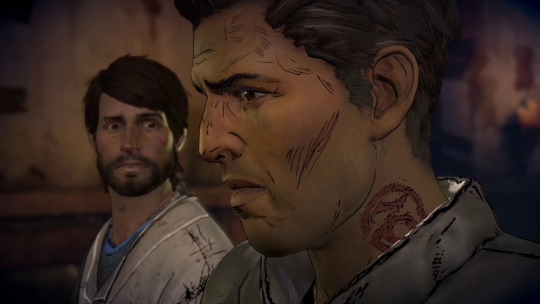
So, what does all of this Kenny, Minerva, and Nate talk amount to?
It helped me in understanding a reason in why I like David so much.
I already knew that I enjoyed learning more about who he was prior to the outbreak, as well as having light shed on his and Javi’s relationship, but not in the way I initially thought.
You see, ANF is different in the way that it feeds backstory to the player- through flashbacks. At the beginning of each episode, we play as Javi in the past before the apocalypse happened.
From there, we get to see what David was like compared to what he is now, but they tell it to us through Javi’s point of view and we have to pick apart his character through that forced perspective.
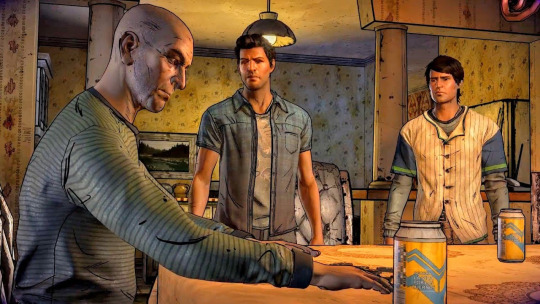
From the flashbacks alone, as well as ep1′s beginning, I put together that:
David was a single father trying to raise two incredibly young children. We’re never told what happened to his first wife. I used to assume that they ended up divorced, but now I’m more on board with the idea that she’s actually dead and that’s why David has full custody of Gabe and Mariana.
Putting the pieces together now, it makes sense of why he married Kate when they’re clearly not compatible, and why he has these high expectations of her. David’s mother and father are still together, and with family being a big theme in ANF, it leads me to believe that David felt his children needed a mother figure in their lives in order for the family to be complete. He needed a wife.
While I think he did love Kate, and she obviously loved him enough to marry him in the first place, David didn’t love her the way he should have.
Kate tells us that their marriage was fucked up. We clearly see that given how she reacts when she sees David again, as well as when David himself confesses that things aren’t working out between them and that’s why he wants to go away.
They’re always arguing, he has those expectations of her as his wife and she’s fed up with it, and things are just.... not working. Of course they’re not.
He wanted a wife to make him feel more complete, as well as give his children that mother figure. He wasn’t out there trying to find the love of his life. For all we know, he already had that with his possibly dead first wife [note: shoot, add “possible dead wife” to the list of shit David’s got going in his backstory for future reference]. He thought that he could try and change Kate from who she is because he was desperate for this to work.
David and Kate should NOT have gotten married, but I can understand the stress David was under with having to raise two children as a single father while dealing with untreated trauma from being a soldier, his confidence in himself as a normal human-being deteriorating due to his “I’m a soldier and I can’t function here” mentality, working a shitty job while going back and forth on whether or not he should go sign up again, having a strained relationship with an irresponsible brother who lost his baseball career due to a gambling addiction yet still never being around when David needed him.
David marries Kate and things don’t fix themselves.
And then Javi does come around, and David doesn’t know how to act or what to say.
Then his father keeps from them that he has cancer and he’s not planning on getting treatments for it.
When his father loses his battle with cancer, everyone is there except Javier. David’s there holding his hand while his dying father asks for Javi.
I get why David’s upset that his father isn’t seeing him because he’s looking for Javi. Is it selfish to feel jealous or heartbroken when it’s your father that’s dying? Yeah, but it’s a realistic feeling. Most of us have felt some level of this but don’t want to admit it because we don’t want to see ourselves in a negative light. It’s easy to look at David and be like “What a selfish prick.”
But... why wasn’t Javi there? Everyone makes it clear that he should have been there, no excuse. Everyone was there for hours, for days but Javi was no where to be found. This plays beautifully into Javier’s character growth throughout the season, but what about David?
Compared to the “tragic backstories” of Kenny and Minerva, David’s seems... a little mundane, huh?
He has problems focused more in the real world rather than the apocalypse world.
Every bad thing we’ve ever learned about Kenny and Minerva happened after the walkers.
Plenty of people have served in the military and dealt with trauma rooted in their service.
Plenty have either been divorced or lost their spouse, were left as a single parent to raise the kids they love but are afraid they’ll fuck up if they do it alone. How about those who are apart of an unhappy marriage?
Nearly everyone has worked a job they hate and know the toll it can take on your mental health.
Left in the shadow of a more successful sibling, no matter how hard they try to be on that same level and earn that love, too.
A parent with cancer, or another life-threatening illness.
Feeling as though they can’t function because they’re not built to live in such a humanly “normal” world, eager to find where they belong and have a fulfilling purpose.
Everything David has going on prior to the apocalypse is real and relatable, and I like that this is the route they took with him. Rather than having him be like Kenny, who seemed to live happily with very little issue and only began to suffer when the apocalypse came, they took a route similar to Lee and Javier.
“Things weren’t great before.”
That being said, do any of these things justify David’s bad behavior towards Javi, Kate, Clementine, and everyone else? Does it justify the bad things he ends up doing during the events of ANF.
Hell no!
David can be a real prick and amazing backstory/introduction or not, I am not okay with that!
But look.
Listen.
ANF is such a mess. It’s a disaster.
It’s ‘s2 mess,’ but on crack.
I firmly believe that David is one of the better things to come out of it, except he got severely fucked over by just how terrible ANF’s writing could be.
They started off so good. David is established and he has some of the better character moments in the entire game, but it’s all buried underneath the bullshit.
They actually gave us David, who dealt with a lot of “normal” shit to try and find his place and be happy, made him have problems that we can see ourselves having and relate to, making us question ourselves, and then they gave him what he wanted.
David met up with Ava, he found Clint and Joan, and they created a community together where David got to be this leader with a purpose. He got what he wanted at the sacrifice of his children, wife, brother, and parents, something he didn’t even have a choice in.
They had all the right ideas...
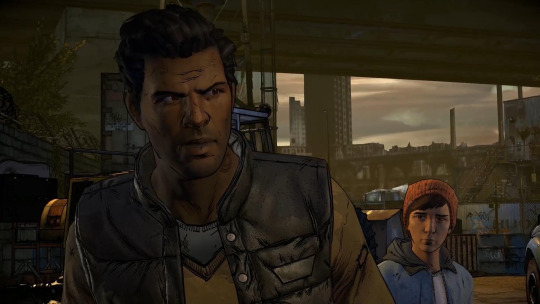
I love the different take to David’s backstory. I love the way he was introduced in ANF. I love the way these things managed to weave themselves throughout ANF despite it being...... ugh.
People who hate David, like the one who listed all of those lovely attributes of his in the previous part, think he is nothing but a whiny, selfish, asshole because of the way he’s introduced and portrayed in flashbacks and... I disagree to a point.
He is an asshole a lot of the time, especially when you don’t side with him [heh, sound familiar] but that doesn’t mean he’s not a compelling, relatable character to study and infer about. And y’know what? I like that he’s not Mr. Nice Guy. Someone like him wouldn’t be. He is a person who can nice moments, and he has bad moments. It doesn’t excuse the shit he does, but it at least adds a depth to it that I appreciate.
I’m mature enough to recognize these his bad behaviors, acknowledge them, and infer more about his character without makes excuses and pretending that him having a tough time means it’s okay for him be that way.
I can see what they were going for as far as his endgame, but I’ll talk more about that later.
As for the conclusion of this long winded segment:
A character’s backstory, first impression, execution of developing these small seedling details into an overarching story plays an important role in the growing love of a character, problematic or not. Both love and hate can be stemmed from the maturity and knowledge of the viewer based on how relatable and sympathetic they find these ideas.
[Continued in 3/?]
#long post#'problematic fave' essay#twdg kenny#twdg minerva#twdg david#twdg nate#twdg lilly#twdg clementine#twdg aj#twdg louis#twdg violet#twdg marlon#twdg brody#twdg lee#twdg jane#twdg javier#twdg kate#twdg gabe#twdg mariana#twdg tenn#twdg russell#twdg wyatt#twdg eddie#like in the first post i'd like to hear your thoughts on these ideas#of how backstory and introductions play a part in why we love problematic characters#next part is all about a character's physical appearance#and if we're shallow enough to forgive a characters problematic behavior based on looks
37 notes
·
View notes
Text
yo, here to “make some sense”, since i’ve grown up with these two stories.
i feel bad for sakura fans, i genuinely do. the amount of shit their girl gets. unfortunately there are reasons why sakura is hated so much - basically Kishimoto did her wrong. like, very, very wrong.
of course he’s entitled to outline his characters as he pleases and he did an awesome job for some of them, mostly males. the main problem with sakura is that she clearly wasn’t designed to be a bad character but she ended up having so many problematic qualities even the author himself couldn’t redeem her despite the desperate efforts he made throughout the story.
90% of sakura’s personality and role revolve around the fact that she’s in love/obsessed with sasuke. i won’t even delve into how problematic her feelings and their ending are, there would be way too much to talk about. but as a result, she was deprived of her dignity and self respect. nami has no element that comes even close to that. hell, you can’t even picture nami in a similar scenario.
then there’s the problem of her introduction. a lot of people hated her from the start for how she talked about naruto. sure, that served as a base for change and character development, which we definitely had, but... it was just not enough. continuously tainted by new failures. Kishimoto didn’t even bother giving her an interesting backstory or background, a reason to be a shinobi, a meaningful goal. i know she was 12 at the beginning of the story, but so were naruto and sasuke. even secondary characters like hinata, neji and rock lee had more depth than her from the very start.
in the whole story, i remember two (TWO) highlights for sakura: during the second trial of the chuunin exam and the battle against sasori. i remember thinking at that point “oh yeah, finally we are going somewhere with this character”, but that was it. at the end of the first part, she’s reduced to nothing but a crybaby and the action is completely shifted to the rest of the genin. in shippuden, Kishi gives her this weird goal of reaching naruto and sasuke, which... let’s be honest, felt ridiculous from the beginning. did anyone actually believe she could stand on pair with the two godly reincarnations of the series? we see it in the final war, everything she does felt like Kishimoto’s strained effort to keep her in the story. that’s why people call her useless.
there’s nothing of the sorts in nami. she plays to her own strengths and manages to pull her weight with her brain and her peculiar skills (a few examples: the luffy vs cracker battle, end of skypeia, duel with kalifa). unfortunately, sakura was never this resourceful, and that’s quite strange because she was supposed to be one of the smartest newbies around.
finally, i think the breakage point with sakura for me (and many other fans) was the infamous “i love you” to naruto. that scene per se is enough to make people hate the character and it’s the dirties kishimoto ever did to her. even without addressing the fact that she tricks her friends into helping her with this abhorrent mission of hers, just to leave them unconscious outside their walls during a time when relationships among villages were uneasy, that confession alone is a point of no return for a huge portion of the fandom.
unfortunately she was never given the charisma or the highlights to withstand these character moments.
now, it’s fine that you like sakura, i myself stan many underdogs from other media. i’m just offering an explanation why she gets so much hate.
and, aside from the fact that they’re snappy, fundamentally good and loyal to their friends, like basically all the female leads in shonen, nami and sakura have nothing in common.


Ok i'm litteraly so pissed and confused about how people adore Nami and loathe Sakura. Please make it make sense to me. Ok they litteraly have the same personalities, same roles, same attitude and hit the MC for their stupitidy. Also both of them hit the MC's for comedy!! Just because you're not used to Japan's comedy style dosen't mean you have to trash her and bring her into every little thing. Like i'm so confused about how she's being hated on under a One Piece youtube vid. You guys litteraly go way too far and it's really strange. I even so a person say ''Never again compare that shit forehead with queen nami.''

Well that Beautiful forehead and Queen Nami act the exact same way!! Like get the hell over yourselves. Isn't Naruto a show about dealing with hatred? So why is it that Naruto is one of the most toxic fandom ever!! LIke you all need to rewatch the damn show!! It's so weird how you guys hate her for litteraly no reason, This showed me that people will hate someone for the most unvalid reasons ever!! I'm so ashamed to be part of this hell hole of toxicity and hate. There's only like 20% of the Naruto fandom that aren't haters. I love Sakura and Nami so much their both my fav character's in One Piece and Naruto, so seeing people trash Sakura while compairing her to Nami makes me sick and really upset. There was a bunch of other hateful comments trashing Sakura like this. It's so weird and it needs to stop!!
#naruto#one piece#nami#anti sakura#anti naruto ending#anti sasusaku#why sakura is hated#and it isn't really her fault#i'll get so much hate over this
51 notes
·
View notes
Note
Do you think people like Reyes because he's the spicy Latino character? im trying to understand the hype. I kind of think people just like him for being hot brown boy with hot accent.
lol wtf you’re like the third nonny to ever ask me to speak for the entirety of Reyes stans and tell you why we like him. I mean, whatever answer I give will be personal and not necessarily a reflection on the community, so let me get started on something I can generalize: fetishization.
[*Note I have a small postscript answer anticipating Sloane Kelley’s characterization at the end of this post.]
Short answer: No, but… Long Answer: Yes, but… >both buts lead to: but racism is something we participate in regardless of whether or not we are anti-racist.
Basically, we consume and propagate tropes and images regardless of how we problematize it, and it’s really up to your consumption of Reyes’s character to determine your complicity in the fetishization that inevitably follows a character like him.
The Unintentional Lecture on the Spicy Brown Boy with an Accent Trope
I think you’d all be lying if you say you didn’t get a wee bit charmed by the accent when you first heard it. It’s subconscious; it’s ingrained in everything we consume; the person with the accent is exotic, mysterious, and jarringly different from the identities you formed in the creation of your protagonist.
Writers, filmmakers, and artists have constantly employed accents for characters to instill a very impermeable yet nonetheless alluring sense of “difference.” This is why George Lucas racistly gave the aliens accented English in the prequel trilogy despite having given them acceptable yet unintelligible (to us) alien languages in the original Star Wars trilogy. The bureaucrats starving Naboo for a trade deal get the haughty Japanese businessfolk accent; the slaver who owned Anakin and is “stingy” has a vaguely semitic accent; Jar Jar Binks with his “massah” lingo and incoherence eerily mimics the language white writers ascribed to black slaves in 19th-century fiction (as seen in Uncle Tom’s Cabin and Huckleberry Finn), and it’s weirdly reminiscent of Jamaican accents as well, so you can’t help but think of his “tomfoolery” in a racialized undertone. I’m sorry to call out George Lucas in this (I’m really not tho), because he isn’t alone. My point is that in the most blatant of cases, accents from real communities and groups are transposed onto alien or monstrous creatures in a move that simultaneously anthropomorphizes them (i.e. giving them voice and characterization) without granting them the dignity of being fully human and an American or British accented English seems to be the dominant mode of doing this. [Let’s not talk about how Bioware has handled accents for aliens in GENERAL in the ME Original Trilogy for now, because this is complicated]
On the flipside you can dehumanize human characters by giving them this same treatment of accents. See this post for an elaboration.
What happens when you give a human character an accent?
Oh all sorts of things. I’m gonna just drop it right here and lay it on y’all this foundational and phenomenal book called Orientalism by Edward Said. Being a product of the late 70s, updates and headway have been made in this mode of literary criticism. But basically, artists and writers have always romanticized “Eastern” tropes, cultures, and artifacts (including speech) in a way that hides the violence of imperialism while inundating the “motherland” with its stolen wealth. Writers loved them their muslin fabric, their jade jewelry, their olive-hued women; the sexual provocativeness of 1000 and One Nights. It was a way for the “West” to impose and project its imagination on cultures they do not and refuse to understand.
Spanish accents (whether from Spain, Latin America, and other spanish-speaking post colonies) are not exempt from this “Orientalism” despite its emphasis on the East. As some of you might recall, Spain was once part of the Islamic empire of Al-Andalus in the fifteenth century; Western Europe (cough cough mostly England cough cough) constantly ascribed to the Irish and the Spanish a “blackness” associated with “Moors” - no doubt a result of their trade dealings with Muslim cultures at the time. There is a long history of Spanish figures and characters being treated as malcontents - they are outsiders who fit remarkably well in their courtly contexts. [See this post for examples, but I also recall Spanish Tragedy as an early modern example].
So to sum up what I mentioned above, Reyes definitely is a product of all these tropes at work. As a prominent character, his accent does have a function. Everything you’ve absorbed via your good friend Cultural Osmosis Jones will subconsciously make you alert to the following descriptors: enigmatic, elusive, charming. I also think it’s interesting that he walks up to you as Umi is aggressively making her customer pay by brandishing a dagger. Your introduction to Reyes are therefore associated with: seedy bar fight and accent.
The complicated part of this answer is, as I’ve mentioned elsewhere, Reyes is nonetheless well developed and humanized. He does not flirt with you at every turn (contrary to what some people say), and he does not make advances if you choose the non-romance options for dialogue. He also expresses genuine vulnerability WITH you (so you’re not manipulated into pitying him). But perhaps the most human part of him (that arguably makes him more exciting than other Andromeda characters) is that he is unapologetically flawed. In the culmination scene of their romance, he either thanks you for accepting these flaws, or he makes a cheesy line about how you have him figured out.
“You’re the encrypted one.”
“haha… I was about to say something cheesy.”
“Say it.”
“Consider me hacked.”
We can say aw cute how cheesy, but what he’s really trying to say is that he likes you because, like any hacker, you mastered his code and can read them, whereas with others he maybe constantly misread to be what they want him to be (a smuggler, the Charlatan, etc). The sweeter option where he thanks you for accepting him is a more straightforward way of admitting the exact same thing.
To return to the question, YES the accent plays a heavy part in hooking the player into his backstory (conscious or not), but Courtney Woods really did a great job psychologizing him into a very relatable and refreshingly honest figure whose irreverence makes for an interesting experience of a game that otherwise poorly handles ethical quandaries.
Skin Color?
There’s no question that people LOVE a brown character. The aforementioned “classic” Uncle Tom’s Cabin has an array of enslaved black characters, but the only ones who get a happy ending are… “quadroons,” which is a derogatory term for black slaves who are visibly mixed/mostly white (i.e. they pass as “a quarter black”) whereas the unambiguously black character like Uncle Tom dies horribly. But that was the nineteenth century. What has happened since? I don’t have to explain to you that when casting for a protagonist who is also black, Hollywood tends to hire light skinned black characters. Why? Frankly because people are racist and tend to criminalize dark skinned black people. “Brownness” goes along with the orientalism mentioned with accents; it hearkens to an exploited colonial wealth that speaks of exotic flavors. The description of darker skin as chocolate, caramel, or other foods grown from colonies and plantations relies heavily on the consumer/reader/viewer’s acceptance of brown as exotic.
Again, Reyes gets better and more humanizing characterization than his skin color and accent, but this history is nonetheless present in our consumption and imagination of him. And fandom has to be aware of this history if they want to avoid fetishizing a Latino character in their artistic works and contributions.
So nonny, I think the trope is sedimented in our love for Reyes, but to not be able to see past it and appreciate the better parts of his development would be reductive and, frankly, just as racist as sidelining the few representations of Latinos we get.
Postscript note: Sloane Kelley is also a victim of all this baggage and history. As one of the few black women in the game, she was written to be disposed of and unliked. Even if you side with Sloane from the very beginning, she doesn’t get as much fun developments and moments with Ryder as Reyes does, which means Bioware deliberately made her not easily sympathetic. And unlike the original trilogy’s Aria T’Loak, she isn’t presented as competent given how her mob boss antics are shown as unnecessarily violent (it’s the first thing you encounter when you arrive at Kadara), and she is presented as tactlessly uncompromising whereas both Aria and Reyes are allowed room for a business savvy maneuver.
I still argue that you should be given the option to broker a truce between the two. It’s so fucking shameful that you basically lock the romance over her dead body (which is why I rarely share gifs and images of the cave scene). It’s violent, and I really expected better from Bioware.
52 notes
·
View notes